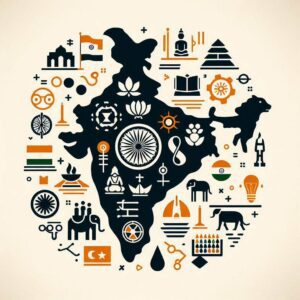9 May 2024
“I don’t know” is a phrase rarely heard in India. This is unsurprising because Indians know everything, whatever the subject. Hence, Nirad Chaudhari’s incisive observation that the Hindu penchant for a ‘know it all’ attitude, often expressed volubly in high volume, makes Indians reek of arrogance.
It is a unique Indian trait. Test it: Ask for a direction, mention a health issue, touch on political developments, ask about a travel destination or whatever. The interlocutor will tell you all without bothering to check whether or not you are interested in the details or bothering to ask what you might think.. (One Joint Secretary visited Australia for a week, and then briefed us at the High Commission about Australian history, people and politics over lunch – without a single query to confirm his assessments.
An occasional corollary to this behaviour is to imperiously reject the ‘unknown’ as something that cannot be. If you mention something that does not fit the Indian’s knowledge or experience, s/he will not elicit curiosity about the matter but simply ward it off with a ‘no, no, that is not so’ or such.
I can unequivocally assert that diplomacy’s central tenet—patiently listening to obtain information—is most effectively practised in India. Of the 11 diplomatic postings, New Delhi was the easiest where to gather insights into subjects of interest.. My favourite tactic was to attend a round table lunch or dinner and (relentlessly) pursue a subject of interest with leading questions. Other diners rarely aked a question of me in return. Walking away, I always marvelled that none of them had exhibited any curiosity about me or what I thought. In effect, I knew about them, but I was unknown to them.



